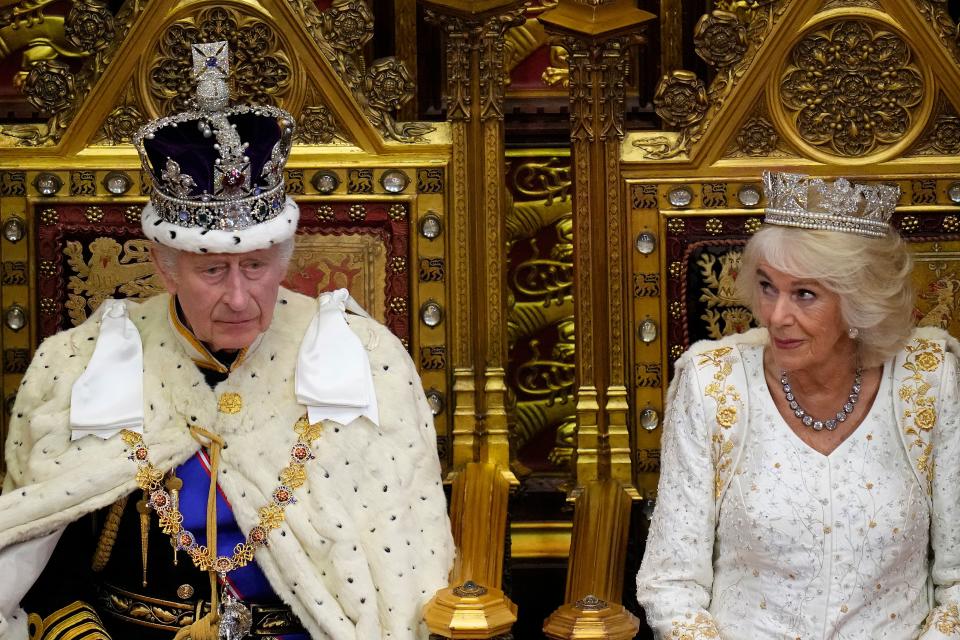Streamer Regulation In UK Confirmed By King’s Speech

The UK’s long-gestating Media Bill, which includes regulation of streaming services in line with broadcasters for the first time, has finally been rubberstamped in the King’s Speech.
King Charles III has just laid out the various laws that will now make their way through parliament – in the process becoming the first King to do so in seven decades – which features the long-awaited Media Bill. The speech is devised by the UK Prime Minister and read out by the monarch in a centuries-old ceremony in parliament.
More from Deadline
Published earlier this year, the headline policy in the Media Bill is a move to bring the U.S. streamers under Ofcom’s regulatory framework, which would mean they can be fined up to £250,000 ($308,000) or restricted in the UK entirely if they break rules around harmful material that have applied to the public broadcasters for decades.
The bill will “better protect children by applying similar standards for TV to the streaming giants,” said the government’s notes on the King’s Speech. “The Bill will ensure standards are upheld on video-on-demand services through a proportionate new Video-on-demand Code, to be drafted and enforced by Ofcom.”
The likes of Netflix have criticized the move in the recent past, saying impartiality rules could have a “chilling” effect on its appetite to make documentaries available to British audiences. Netflix’s submission to the UK Parliament’s Culture, Media and Sport Committee earlier this year threatened to preemptively remove films and TV shows from its UK library to avoid falling foul of the new regulations if rubberstamped. Netflix has, however, consistently stressed support for the Media Bill, pointing to a close working relationship with Ofcom and partnerships with local broadcasters on shows such as The Bodyguard and Dracula. It is also the only streaming service to voluntarily carry BBFC age ratings on all content.
The move will satisfy calls to bring streamers more in line with broadcasters given how much UK content the U.S. giants produce and how much UK talent they have snapped up over the past few years.
Prominence & Channel 4

The Bill also includes long-awaited updated to the rules around prominence for UK broadcasters, who have been arguing for several years for major platforms to prioritize them. The new legislation will force global TV platforms to “prominently” carry VoD players like iPlayer, ITVX and Channel 4. The government said this will “ensure public service content is always carried by connected devices and online platforms, and easy to find for UK audiences.”
“Internet access and streaming services have fundamentally changed how audiences access broadcast content, but our public service broadcasters are governed by laws written 20 years ago,” added the government. “The Media Bill is needed to enable these broadcasters PSBs to compete in this new world, so they can continue developing skills and driving growth in the creative industries across the UK.”
ITV boss Carolyn McCall said the prominence update is a “critical step towards ensuring that public service broadcasters can continue to invest in the brilliant British content our audiences love, because our shows will be available and easy for people to find on all major TV platforms and devices.”
The bill also waves through controversial new laws to allow Channel 4 to produce and own rights to its programs for the first time in its 40-year history. The network can now proceed with a ‘Channel 4 Productions’-style model in a similar vein to BBC Studios and ITV Studios, which will allow it to monetize some of its content via third-party sales. The move has been heavily critized by UK producer body Pact and came in the wake of the government’s U-turn on Channel 4 privatization.
Elsewhere, the bill will “modernise the ‘mission statement’ for these broadcasters” to “encourage a focus on what makes them distinctive” via a new framework.
Best of Deadline
SAG-AFTRA Interim Agreements: Full List Of Movies And TV Series
2023 Premiere Dates For New & Returning Series On Broadcast, Cable & Streaming
2023-24 Awards Season Calendar - Dates For Oscars, Emmys, Grammys, Tonys, Guilds & More
Sign up for Deadline's Newsletter. For the latest news, follow us on Facebook, Twitter, and Instagram.


